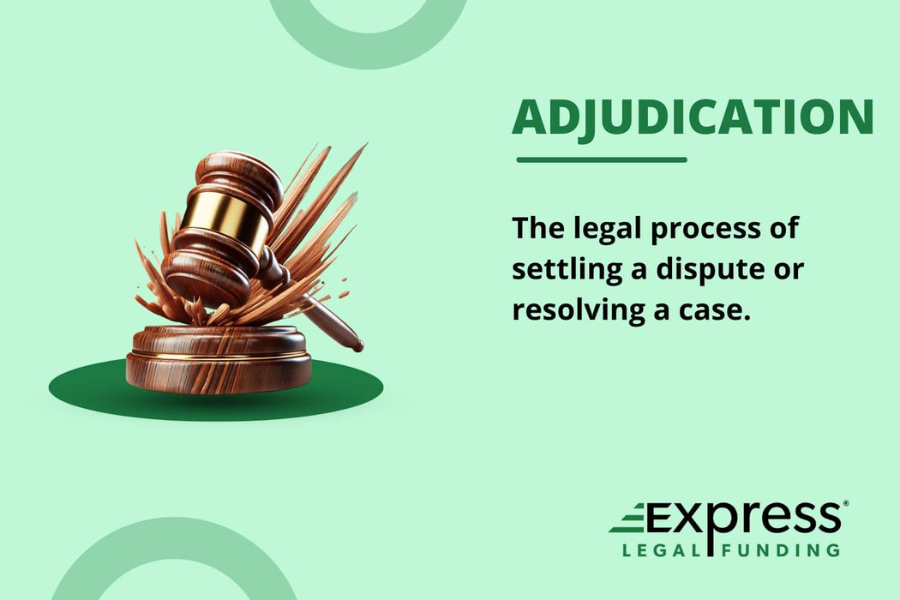The assessed value plays an important role in legal negotiations, and provides a legal -defined assessment of the property that ensures clarity and justice in disputes. As a legally binding figure, it differs from market or evaluation values, and offers an official target for property sales, tax commitments or distribution of property. In 2025, with the growing complications in real estate disputes and tax management, it is important to understand the sensible value for individuals, companies and legal professionals. This article examines the distinctions on definition, determination process, applications and supportive value, which are adapted to those who seek broad insight into its legal and practical implications.
Defining Adjudged Value
Adjudged value refers to the monetary worth of a property or asset as formally determined by a court or legal authority, making it a legally enforceable figure incorporated into a judgment or order. Unlike estimates or opinions, it is a definitive valuation based on evidence presented during legal proceedings, per legalclarity.org. This value resolves disputes by establishing a clear, binding amount for assets like real estate or business interests, ensuring consistency in legal outcomes. Its authority stems from judicial oversight, distinguishing it from other valuation types and making it critical in contexts requiring legal finality.
Legal Contexts for Adjudged Value
The assessed value is used on various legal scenarios, where evaluation of assets is fought or requires official recognition. In divorce case processing, the courts use auxiliary value to distribute marital property equally, such as home or investment portfolio, to prevent disputes. Make sure the owners secure the correct payment to the prominent domain cases seized “only compensation” for the seized property. Probate law includes support values to distribute real estate funds among the successors, while insolvency is to use its property to consider a debtor’s property for credit payment, per legality. Org. These applications outline their role in solving complex economic disputes with accuracy.
How Adjudged Value Is Determined
The determination of adjudged value involves a rigorous, evidence-based process overseen by a court. Judges evaluate professional appraisals from certified experts, such as real estate or business valuators, who use methodologies like comparable sales or income approaches. Expert testimony, financial records, and market data, including recent sales of similar properties, inform the court’s decision, per legalclarity.org. The process weighs the credibility and relevance of evidence, ensuring the final value reflects fair market conditions. This structured approach guarantees transparency and legal enforceability, critical for upholding fairness in 2025’s judicial landscape.
Adjudged Value in Tax Foreclosure Cases
In cases of tax rejection, a significant value is important to determine the market value of the property subject to an important tax law to determine the market value of a property. According to Texa’s tax code section 33.50, the courts install this price based on the latest evaluation roll, to prove another market value with the burden of the property owner, Per Texas.public.law per texas.public.law. The assessed value determines the minimum bid for the sale of properties, and ensures that tax units or buyers pay a reasonable price. This process protects both public interests and property owners, balanced by balanced with legitimate evaluation in 2025.
Adjudged Value vs. Other Valuations
Adjudged value differs significantly from other valuation types due to its legal finality. Market value, determined by real estate agents or appraisers, reflects what a property might fetch in an open market but lacks legal weight unless adopted by a court, per legalclarity.org. Assessed value, used for tax purposes, is a percentage of market value set by local governments and does not require judicial oversight. Appraised value, while professional, remains an opinion until formalized as an adjudged value. These distinctions highlight adjudged value’s unique role as a court-validated, binding figure in legal proceedings.
Economic and Legal Implications
There are important financial and legal implications for the use of adjet value. Economically, it ensures the right distribution of property or compensation, and stabilizes economic results in disputes such as divorce or prominent domains, Per Acessider.com Per. Legally, it provides a certain resolution, reduces litigation by setting used benchmarks. In bankruptcy, for example, the support creditor determines payment, affects financial recovery. In 2025, with ups and downs in the values of the property due to financial changes, the adjected value provides stability, and corresponds to 70% of the legal professionals, who prioritize accurate evaluation according to the 2024 industrial survey, to strengthen the resolution of the case.
Challenges in Determining Adjudged Value
Determining adjudged value presents challenges, including subjective appraisals and complex asset types. Discrepancies between expert valuations can complicate proceedings, requiring courts to reconcile conflicting evidence, per legalclarity.org. Valuing intangible assets, like intellectual property, demands specialized expertise, increasing costs. Economic volatility in 2025, such as rising interest rates, can affect market data reliability, per law.justia.com. Courts address these challenges by prioritizing credible evidence and expert testimony, ensuring adjudged values remain fair and defensible despite market uncertainties or valuation complexities.
Role of Technology in Valuation Processes
By 2025, the technology improves the determination of the help value and improves accuracy and efficiency. AI-driven equipment analyzes market trends and comparable sales, and provides the data subject evaluations that can rely on courts, Per Laayserver.com. Blockchain-based platforms ensure transparent journal chatting for financial documents and reduces authenticity disputes. Virtual reality tools allow judges to consider external properties, streamline domain cases. According to the ABA report in 2024, this progress adopted by 60% of legal companies and increases accuracy, leading to more reliable prices in complex legal disputes.By 2025, the technology improves the determination of the help value and improves accuracy and efficiency. AI-driven equipment analyzes market trends and comparable sales, and provides the data subject evaluations that can rely on courts, Per Laayserver.com. Blockchain-based platforms ensure transparent journal chatting for financial documents and reduces authenticity disputes. Virtual reality tools allow judges to consider external properties, streamline domain cases. According to the ABA report in 2024, this progress adopted by 60% of legal companies and increases accuracy, leading to more reliable prices in complex legal disputes.
Future Trends in Adjudged Value Applications
The application of adjudged value is evolving with legal and technological trends in 2025. Increased use in cryptocurrency and digital asset disputes reflects the growing need to value non-traditional assets, per lawinsider.com. Stricter regulations on property tax foreclosures, as seen in updated state codes, emphasize precise adjudged values to protect owners. AI and machine learning will further refine valuation accuracy, with predictive models forecasting market shifts. These trends ensure adjudged value remains relevant, addressing emerging legal challenges while maintaining fairness and transparency in judicial outcomes.
Conclusion
A court -transferred wealth assessment, assessed value, is the cornerstone of legal negotiations in 2025, which ensures justice in disputes ranging from divorce to tax. The evidence-based determination process provides important clarity in uniform resolutions, separated from market or evaluation values. Despite the challenges as a subjective assessment, technology increases its accuracy, while new applications in digital assets indicate its future relevance. By providing legal and economic stability, the vulnerable price interests to navigate complex financial landscapes with self -confidence strengthen the importance of it in modern legal systems.

